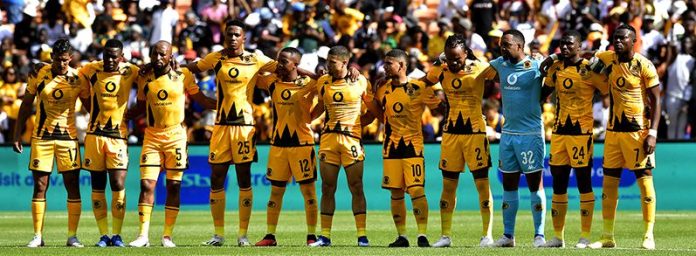Government and Justice
In the book, Black Skin, White Masks, Frantz Fanon debunks the concept of white superiority, and in the words of Professor Maboge Percy More, agitates for blacks to liberate “the black person from the zone of non-being imposed by an anti-black racist society”. Fanon further argues that the “zone of non-being” is imposed by the strictures imposed on black people by “anti-black society”.
Recently, reports of “racial tension” at Kaizer Chiefs surfaced, intimating the bad blood between “black and coloured players”, in which “black players claimed their “coloured” teammates were given preferential treatment.
We also know, as a matter of fact, that football club Chiefs came into existence some 53 years back, in the 1970s, at the time when the struggle by black people to liberate themselves from the bondage of white chains, was intensifying, led by black-oriented organisations such as the South African Students Organisation or Saso, which was led by fiery university students such as Steve Bantu Biko and Barney Pityana.
But also more telling, the Black Consciousness Movement (BCM), pioneered by Biko and his comrades, preached one crucial message among black people, that they were not inferior to anyone despite their oppression, and that they have a duty to use their own bootstraps to lift themselves from the mess of injustice visited upon them by white oppression.
Black people had everything going against them – pressed against the apartheid wall of injustice and oppression. The apartheid statutes were a stranglehold, keeping black people caged as “non-persons” with no right to self-determination.
Biko, who became a prototype of black resistance, taught, with his friends and comrades, the importance of black solidarity – and what black solidarity could achieve to defeat oppression. Black solidarity was an attribute that had a potent force to liberate all black people – not some, but all, without exception, defined in the language of black consciousness.
In his book, Biko: Identity and Liberation, More is reflective of political power of the oppressed communities derived in solidarity, and not in disunity, and quotes Biko as saying: “The growth of awareness among South African blacks has been always ascribed to the influence of the Black Power Movement.”
Quoting Hastings Banda, Biko says: “This is a black man’s country; any white man who does not like it must pack and go…” Then Biko reflects upon Banda’s words: “When fellow black people were talking like that, how could we still be harbouring ideas of continued servitude?
“We knew he (white apartheid government) had no right to be there; we wanted to remove him from the table, strip the table of all trappings put on it by him, decorate it in true African style, settle down and then ask him to join us on our own terms if he liked…”
So, in a nutshell, Biko’s language is about “we” – which is all about human solidarity, even inviting white to “settle down and then ask him to join us on our own terms”. White oppression encouraged division among black people and was averse to black solidarity. It understood that disunity weakened structures, and so promoted divisions, along ethnic groupings. For solidarity to become a reality, Biko ascribes to the philosophy of the “liberation of the mind”.
In the end, BCM, under the stewardship of Saso, Biko and Pityana resolved, time and again, that “black” as defined by Biko was not limited to Africans, but also included Asians, and “coloured”, incorporating black theology, indigenous values…” for solidarity’s sake, and as an aid to defeat the evils of apartheid injustice.
Black Consciousness’ reason for existence is to unite black oppressed communities.
To return to the first point we broach relating to Kaizer Chiefs, and a complaint of the so-called “racial tensions”, Biko would, to the team, its management structure, and players, instil a huge dose of black consciousness – that disunity is an aberration that needs to be wiped out.
Personality differences should not be reduced to racial tensions. Black people must unite and aim for the sky, and not be derailed by pettiness of the moment.
- Mdhlela is the acting news editor of Sunday World, an Anglican priest and former editor of the South African Human Rights Commission journals



